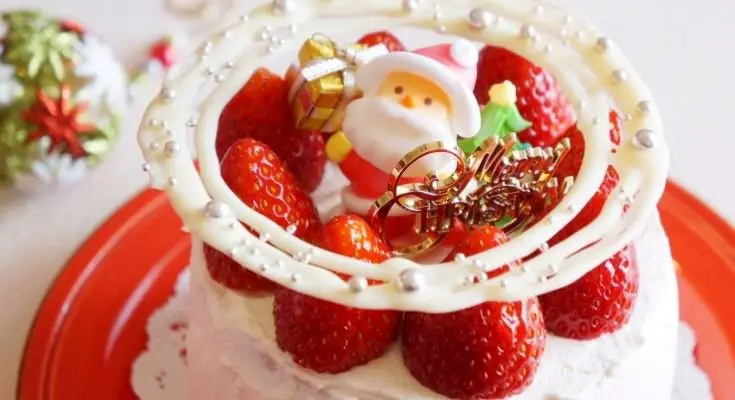When it comes to Christmas celebrations, the centerpiece of many festive tables is the Christmas cake. These rich and decadent cakes are often covered with a layer of smooth and beautiful fondant icing, adding a touch of elegance to the holiday dessert. However, if you find yourself with leftovers or want to prepare ahead of time, you may wonder if it’s possible to freeze a Christmas cake with fondant icing.

Understanding the Freezing Process
Freezing is a common method of food preservation that helps to maintain the quality and freshness of various items.
By subjecting food to very low temperatures, the growth of bacteria and other microorganisms is significantly slowed down, prolonging the shelf life of the product.
Can Fondant Icing be Frozen?
Fondant icing, known for its smooth and glossy finish, is commonly used to cover cakes and create decorative designs.
While fondant itself can be frozen, it’s important to note that freezing and thawing may affect its texture and appearance.
When frozen, the fondant can become firm and lose some of its elasticity. As a result, the icing may develop cracks or become less pliable when thawed.
Tips for Freezing a Christmas Cake with Fondant Icing
To freeze a Christmas cake with fondant icing successfully, follow these tips:
- Allow the cake to cool completely: Before freezing, ensure that the cake has cooled down entirely. This helps prevent condensation and moisture build-up, which can lead to sogginess when thawed.
- Prepare the cake for freezing: Remove any decorations or toppings that are not freezer-friendly. If the cake has multiple tiers, consider separating them for easier storage.
- Wrap the cake securely: Wrap the cake tightly in several layers of plastic wrap, ensuring there are no exposed areas. This helps to prevent freezer burn and maintain the cake’s freshness.
- Place in an airtight container: Transfer the wrapped cake into an airtight container or a freezer bag to provide an extra layer of protection against freezer odors.
- Label and date the container: Use a marker to label the container with the date of freezing. This will help you keep track of the cake’s storage time.
- Store in the freezer: Place the container in the freezer, preferably in an area where it won’t be disturbed.
- Keep the cake frozen for up to 3 months: While frozen cakes can be stored for longer periods, it’s best to consume them within 3 months for optimal taste and texture.
Thawing and Serving a Frozen Christmas Cake
When you’re ready to enjoy your frozen Christmas cake, follow these steps for proper thawing and serving:
- Transfer the cake to the refrigerator: Take the cake out of the freezer and place it in the refrigerator. Slow thawing in the fridge helps to retain the cake’s moisture and prevents rapid temperature changes.
- Allow ample thawing time: Depending on the size of the cake, it may take 24 to
48 hours for the cake to thaw completely in the refrigerator. Patience is key to ensure the best results.
- Unwrap the cake: Once thawed, remove the plastic wrap or container from the cake. Be careful not to damage the fondant icing while unwrapping.
- Bring the cake to room temperature: After refrigerated thawing, let the cake sit at room temperature for a couple of hours. This step allows the cake to reach its ideal serving temperature and enhances its flavor.
- Decorate if necessary: If any decorations were removed before freezing, now is the time to add them back onto the cake. Whether it’s additional fondant accents, edible ornaments, or a dusting of powdered sugar, let your creativity shine.
- Serve and enjoy: Slice the cake into desired portions and serve to delighted guests. The flavors and textures should remain delicious, albeit slightly different from a freshly made cake.
FAQs
Yes, you can freeze a Christmas cake with buttercream icing. Buttercream holds up well in the freezer and maintains its texture and taste when thawed.
Frozen Christmas cakes with fondant icing can be kept for up to 3 months in the freezer without significant loss of quality.
It’s best to freeze a Christmas cake in its entirety rather than freezing a partially eaten one. Freezing a partially eaten cake may affect the overall quality and texture when thawed.
Wrapping the cake tightly in plastic wrap and placing it in an airtight container or freezer bag provides sufficient protection for the fondant icing.
It’s generally not recommended to refreeze a thawed cake, as it can lead to a decline in quality and taste. It’s best to consume the cake once it has been thawed.
Conclusion
Freezing a Christmas cake with fondant icing is indeed possible, but it’s important to consider the impact on the fondant’s texture.
By following proper freezing and thawing techniques, you can preserve the taste and beauty of your cake. Remember to plan ahead, wrap the cake securely, and allow ample thawing time to ensure the best results.
With these tips in mind, you can confidently freeze your Christmas cake with fondant icing, saving time and reducing waste during the holiday season.
